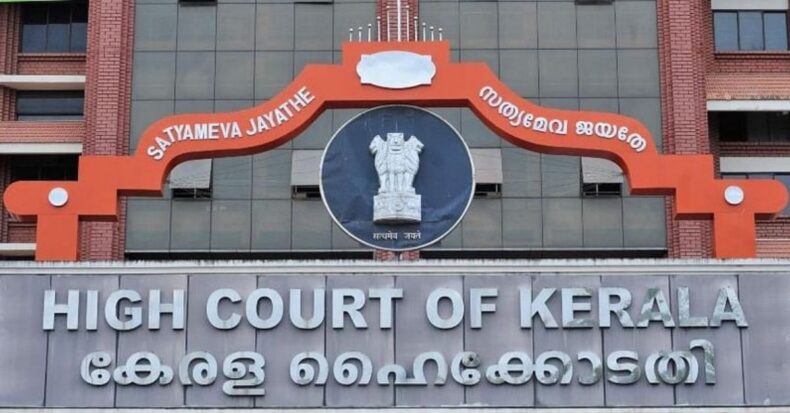The decision of the Kerala government to enforce virtual queue for the betterment of the devotees’ and for the pilgrimage to be safe and smoother.
On Thursday, the Kerala High Court asked what authority the state government or police had to impose a virtual queue system for worshipers visiting the Lord Ayappa temple at Sabarimala.
It further inquired as to whether such a mechanism had been established in response to court orders.
The Travancore Devaswom Board, as the temple trustee, should be the one to bring about any such order, according to a bench of justices Anil K Narendran and PG Ajithkumar.
It asked the government and the police if the system was put in place on the orders of the bench that oversees Devaswom Board proceedings, and it requested responses by October 26.
The court was hearing a Public Interest Litigation (PIL) that it had filed. The PIL is based on a detailed direction issued by the high court on July 1 to consider whether the Travancore Devaswom Board should be entrusted with the virtual queuing system for the Sabarimala pilgrimage, as other Devaswoms have done.
About Sabarimala Temple:
The Sabarimala Temple is a temple complex in Kerala, India, located on Sabarimala hill within the Periyar Tiger Reserve in Perinad Village, Pathanamthitta district.
It is one of the world’s most popular annual pilgrimage locations, with an estimated 40 to 50 million worshippers attending each year.
The temple is devoted to Ayyappan, also known as Dharma Shasta, a Hindu Brahmachari (Celibate) God who is the son of Shiva and Mohini, Vishnu’s feminine manifestation. Sabarimala’s traditions are a mix of Shaivism, Vaishnavism, and various Ramaa traditions.
The temple is situated on a hilltop amidst eighteen hills at an altitude of 1260 m (4,134 ft) above sea level and is surrounded by mountains and dense forests.
The dense forest, part of the Periyar Tiger Reserve, around the temple is known as Poongavanam. Temples exist in each of the hills surrounding Sabarimala.
While functional and intact temples exist at many places in the surrounding areas like Nilakkal, Kalaketty, and Karimalai, remnants of old temples survive to this day on the remaining hills.
More Hindus offer prayer at a mosque of Vavar, believed to be a Muslim devotee of Ayappan.
Only the days of Mandalapooja (about November 15 to December 26), Makaravilakku or “Makara Sankranti” (January 14), and Maha Thirumal Sankranti (April 14), as well as the first five days of each Malayalam month, are open for devotion.
Why was a PIL filed against Sabarimala Temple?
Public interest litigation (PIL) was brought to overturn a decades-old practice prohibiting females between the ages of 10 and 50 — menstrual age – from attending the hilltop shrine. The argument is that it infringes on women’s right to equality, which the Constitution protects.
The Travancore Devaswom Board, which runs the temple, claims that the deity is a Naisthik Brahmachari (a celibate), which is why the restriction exists.
The Kerala government is currently supporting the temple board’s position, despite having previously submitted an affidavit in support of the PIL.
On Thursday, the court questioned the state government about its role in temple matters and if the Sabarimala Pilgrimage Management System was implemented with the board’s authorization.
The state government told the court that it decided in good faith in order to make the pilgrimage easier for believers.
It further stated that the virtual queuing system had been in place since 2011 but that it was activated in response to the COVID-19 pandemic.
The administration claimed that it had heard no complaints about the system so far, although nearly 80 lakh devotees have used it for ‘darshan’ at the shrine.
During the hearing, the police argued that only the board, as a temple trustee, had the authority to enforce a virtual line, contrary to the special commissioner’s report.













